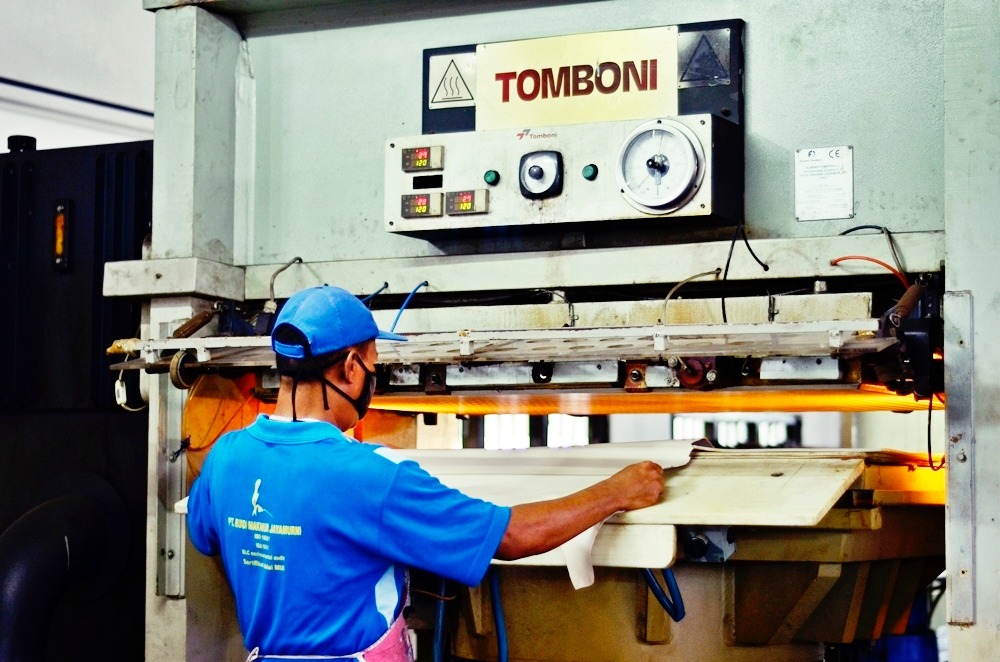Manufacturing Process Finished Leather of PT. Budi Makmur Jayamurni Sustainable Eco Friendly Products
News / How Is Leather Made / What Is Goat Leather
Leather belongs to the most essential materials to craft fashion or furniture products. It leads the leather industries around the world to work on competitive business. PT. Budi Makmur Jayamurni sustainable eco friendly products have the role in the worldwide leather supply chains.
The leather supply chains involve industries focusing on leather tanning, crusting, and manufacturing leathers into consumer products. No matter types of business chain, leather industries must have environmental awareness. With that being said, the industries must apply eco-friendly method.
https://cdn.shopify.com/s/files/1/0905/1936/files/IMG_3805.jpg?v=1492684732

Eco Friendly Leather Manufacturing Process
Conventional tanning process tend to bring bad impacts toward environment since it utilizes certain chemicals. Nowadays we convert to eco friendly method to keep environment safe without reducing the quality of leather products in the slightest.
Generally, leather manufacturing process includes 3 main steps. Those steps intend to change the raw materials to be half processed leather that eventually undergoes advanced manufacturing stage to become finished products.
1). Preparatory
In this stage, we need to prepare the raw material which is the goatskin before going through tanning process. We have to remove the unwanted components from the skin or hide. Roughly this stage includes several procedures, as below.
- Preservation
We use certain method to preserve the skin or hide temporarily.
- Soaking
It is necessary to pour water into the skin for rehydration and washing purposes.
- Liming
Since the skin still contains hairs, so we need to grease the surface with specific substance, so the collagen fiber will loosen up.
- Unhairing
It is the moment when we remove hair from the goatskin. It is important part of PT. Budi Makmur Jayamurni sustainable eco friendly products.
- Fleshing
If there is remaining substance stuck on the skin, we can just remove it properly.
- Splitting
It is a process to cut the skin into two horizontal layers.
- Reliming
We repeat the step of liming so the fibers will loosen up more.
- Deliming
We need to clean up the substances used for liming and unhairing.
- Bating
It is process to remove more proteins and make the pelt softer.
- Degreasing
Degreasing means removing natural fats from the skin thoroughly.
- Frizing
This is the process of removing fat layer within the skin.
- Bleaching
Bleaching is process to make the skin brighter using specific substance.
- Pickling
It is the time to decrease PH value so it will enhance the tanning process later.
- Depickling
The process of increasing PH value. It also makes the tanning substances get into the skin well.
2). Tanning
This is the important step to change the protein inside the skin to be stable material. After going through preparatory stage, all the skins must undergo tanning process to prevent the skins from decomposition.
https://cdn.shopify.com/s/files/1/0267/2816/9654/files/leather-tanning-process-2000x1123.jpg
3). Crusting
Crusting is the process of thinning, re-tanning and lubricating the skin. In some cases, crusting includes coloring process as well. Principally crusting refers to drying and softening skin.
Each leather industry might have different procedures in processing leather. PT. Budi Makmur Jayamurni sustainable eco friendly products only use procedure that is environmentally safe.